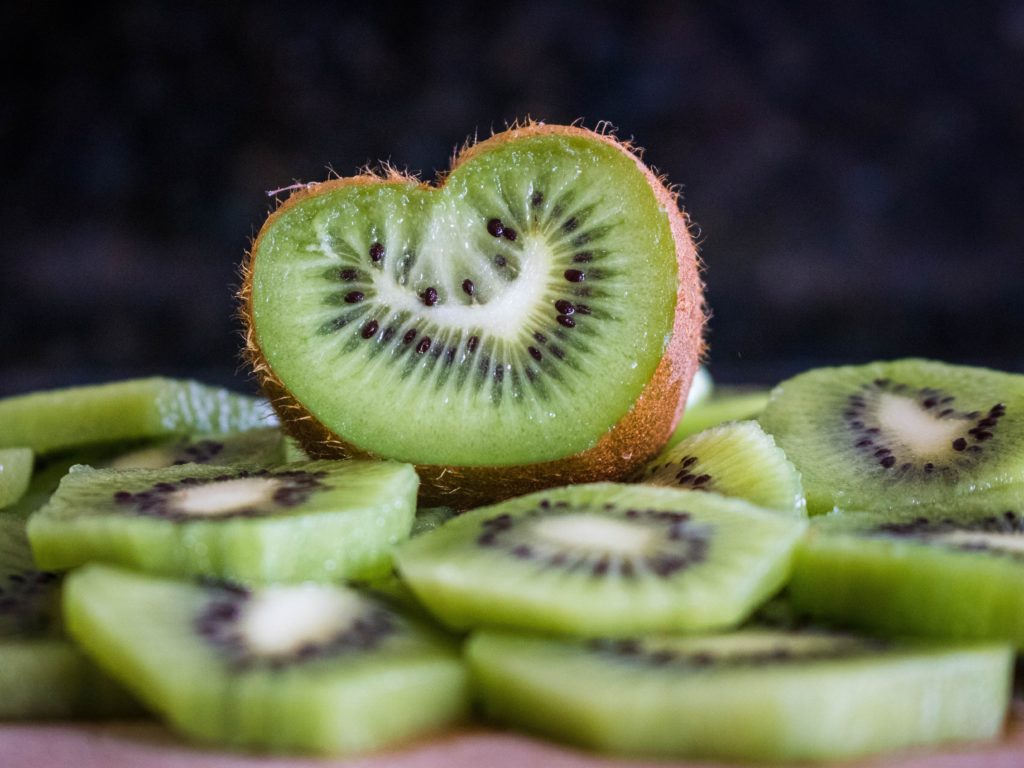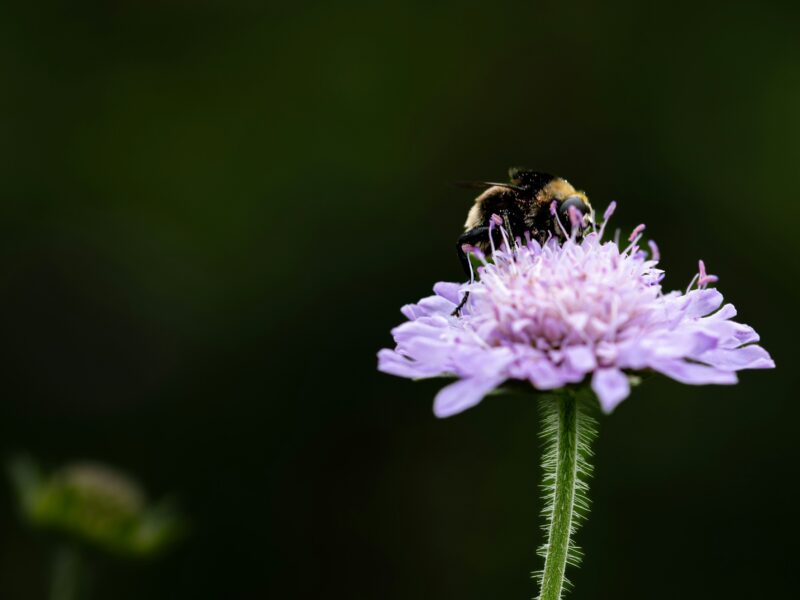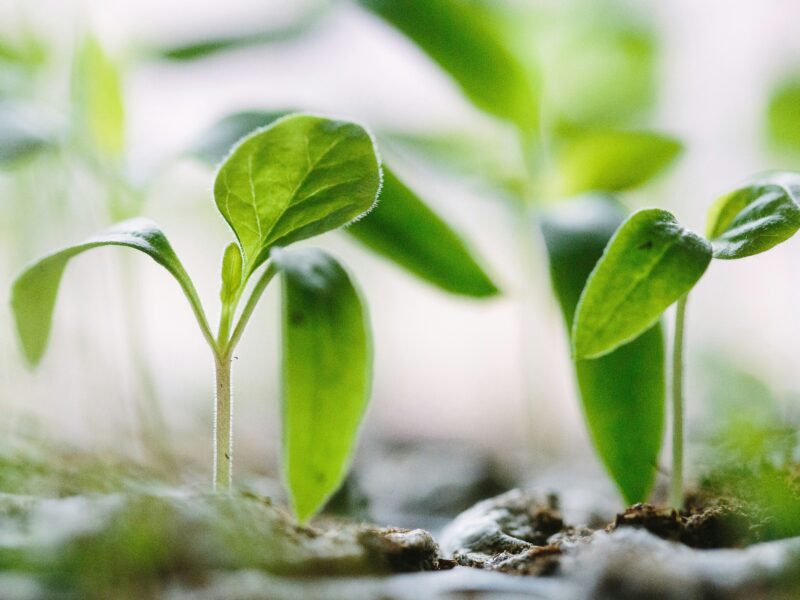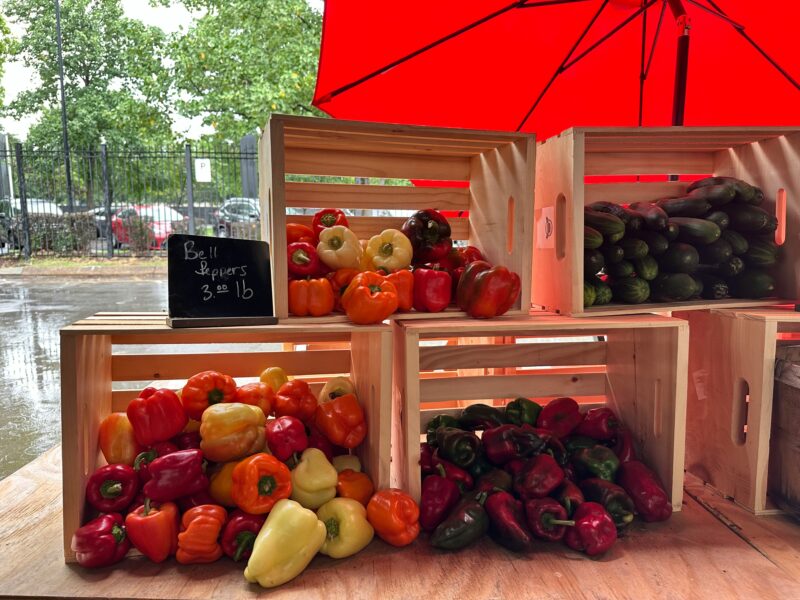Most of us admit to loving farmers, butterflies, and our beautiful planet. But when asked why we buy organic – why we invest our food dollars the way we do – we may not be connecting the dots.
There are hundreds of reasons to fall in love with organic. Here are four reasons to share with your friends and family who may not have switched to organic food.
- If you love pollinators, then buy organic
The science is in: Organic is better for pollinators. In fact, the Organic Center published a paper that reviews over 70 studies on pollinators, the causes of colony collapse disorder, and the impact of organic practices. The research found that organic methods not only can reduce risks to bees but also actively support the growth and health of the populations of bees and other pollinators. The paper outlines pollinator-friendly techniques commonly used by organic farmers that can also be incorporated into conventional farming systems.
One of the most encouraging statistics about pollinator health comes from this study, which found that organic farms increase pollinator diversity by up to 50% and overall biodiversity by 30%.
Overwhelmingly, scientific studies have linked bee decline to pesticide use, illustrating the far-reaching impact these toxic chemicals have on a wide range of environments. Bee-toxic pesticides have a wide variety of long-term detrimental effects and pose a growing risk to fragile ecosystems.
Home gardeners harm pollinators too. Studies have found that pollinators such as honeybees, native bees, butterflies, and birds are in decline. Scientists have identified several reasons for bee decline, notably pesticide use. Even those used at home and sold by nurseries are acutely toxic to bees and pollinators and lead to death and colony collapse disorder.
According to Beyond Pesticides, Colony Collapse Disorder is unlike other ailments that have affected honeybees in the past because worker bees simply disappear rapidly, never returning to the hive where the queen still lives with a small cluster of bees amidst pollen and honey stores in the presence of immature bees (brood). It has been reported that losses of honeybee colonies across 21 states in the winter of 2007-8 averaged 35%.
Pesticides pose significant risks not just to honeybees but also to native bees, butterflies, and other beneficial insects. Other factors – like pathogens, parasites, poor nutrition, and habitat loss – also play a role in pollinator declines. Yet the toxicity of pesticides is undeniable.
But there are plenty of ways to help pollinators, starting in your own backyard. You can find simple ways to support healthy pollinators in your own yard and community. If you’d like to plant a successful garden and help bees and pollinators in the process, find out more about how to use harmful pesticides.
- If you love the Earth, then buy organic
We all know climate change is here. Our ice caps are melting, weather patterns are changing and the thin skin of the soil we live on is feeling the effects.
A common fear is that individuals can do little about climate change. But that’s far from the truth.
Simply switching to an organic diet can have a major impact. Organic farming supports carbon sequestration, which helps to mitigate rising atmospheric carbon dioxide, or CO2, levels. The main benefit of organic crop and livestock production, compared to conventional agriculture, is that it focuses on soil-based production with underlying principles of maintaining or improving soil quality. Healthy soil counteracts climate change by pulling carbon out of the atmosphere.
This is similar to the way native ecosystems, including prairies and forests, act as carbon sinks in nature.
Recent data from farming systems and pasture trials around the globe show we could sequester more than 100% of current annual CO2 emissions with a switch to regenerative organic agriculture practices.
When you buy organic you are supporting the following:
- Produce healthier soils that contain 13% higher total organic matter and capture 44% more stable sequestered carbon.
- Use 61% less energy than conventional production, significantly reducing the burning of fossil fuels.
- Generate yields up to 40% higher than conventional systems in times of drought.
If you want more data, take a look at the five ways that going organic can reduce climate.
- If you love farmers, then buy organic
Organic farming doesn’t expose neighboring communities and farmworkers to dangerous persistent pesticides.
According to this study from the Organic Center, farmers and farmworkers face a great risk of exposure to agricultural pesticides and the health harms that can occur as a result. Neighbors are also at risk for exposure through pesticide drift if they live near a big farm or a conventionally managed park or playing field. Pesticide drift is a threat to human health as well as to wildlife and ecosystems.
The Organic Center report details the impacts of the conventional use of synthetic pesticides on farmer and farmworker health – and how organic can be used as a model to decrease the exposure of this important part of our society.
Another study adds to a larger body of research showing that eating organic may very well reduce pesticides in the human body. The study found that families eating a 100 percent organic diet rapidly and dramatically reduced their exposure to four classes of pesticides – by an average of 60 percent – over six days.
- If you love being healthy, then buy organic
Organic food contains more vitamins, minerals, enzymes, and micronutrients than conventionally raised food. A growing body of evidence shows how farming methods can influence the nutritional content of foods.
Here are just a few highlights:
- A six-year study found more antioxidant activity and higher flavonol content in organic onions over conventional.
- Meta-analysis published in 2016 in the British Journal of Nutrition found that organic dairy and meat contain about 50% more omega-3 fatty acids. The increase is the result of animals foraging on grasses rich in omega-3s, which then end up in dairy and meats.
- An 18-month milk study in 2013 found that organic production enhances milk nutritional quality by shifting fatty acid composition.
- A meta-analysis published in 2014, in the British Journal of Nutrition, found that organic crops had significantly higher antioxidants than conventional crops, including 19% higher levels of phenolic acids, 69% higher levels of flavanones, 28% higher levels of stilbenes, 26% higher levels of flavones, 50% higher levels of flavonols, and 51% higher levels of anthocyanins.
Put simply, cleaner food means cleaner diets which leads to a cleaner bill of health.
Another thing we love the things organic does not include:
Fewer than 40 synthetic substances can be used in organic packaged foods – and only after they have been reviewed by independent and government experts.
By contrast, thousands of chemicals can be added to conventional packaged foods, including artificial preservatives, flavors, and colors linked to health problems. Learn more about these differences between organic and conventional foods from EWG.
One of the issues with the synthetic additives found in processed conventional foods is that they are targeted at children and parents. These chemically addictive additives lead to many health problems. The true price of this “cheap” food is Americans’ health. From diabetes to obesity to ADHD, the food-related disease is at an all-time high. Or, as the New York Times put it, “Our Food Is Killing Us.”
A study in JAMA Internal Medicine found that those who ate organic foods frequently lowered their overall risk of developing cancer – those who primarily eat organic foods were more likely to ward off non-Hodgkin lymphoma and postmenopausal breast cancer compared to those who rarely or never ate organic foods.
And here are two more ways organic is better for your health.
As you continue to choose organic food, we hope these studies and findings inspire you to share why you buy organic. When you fall in love with organic, you show you love pollinators, the planet, farmers, farm workers, your health, and the health of your loved ones.









